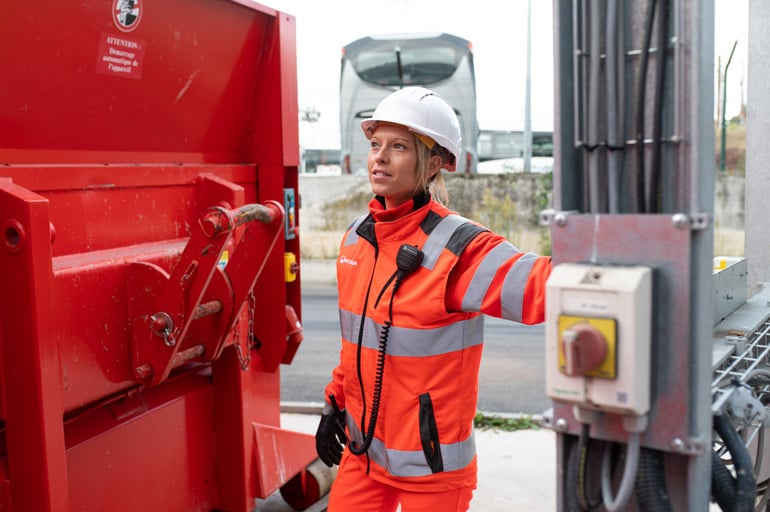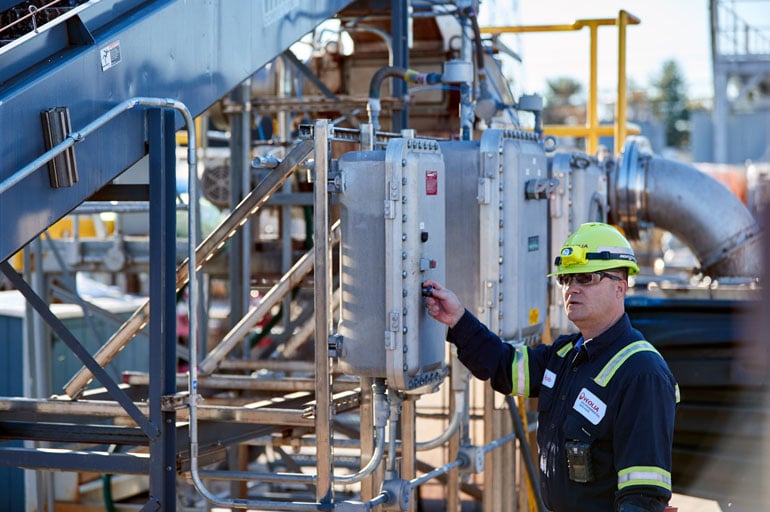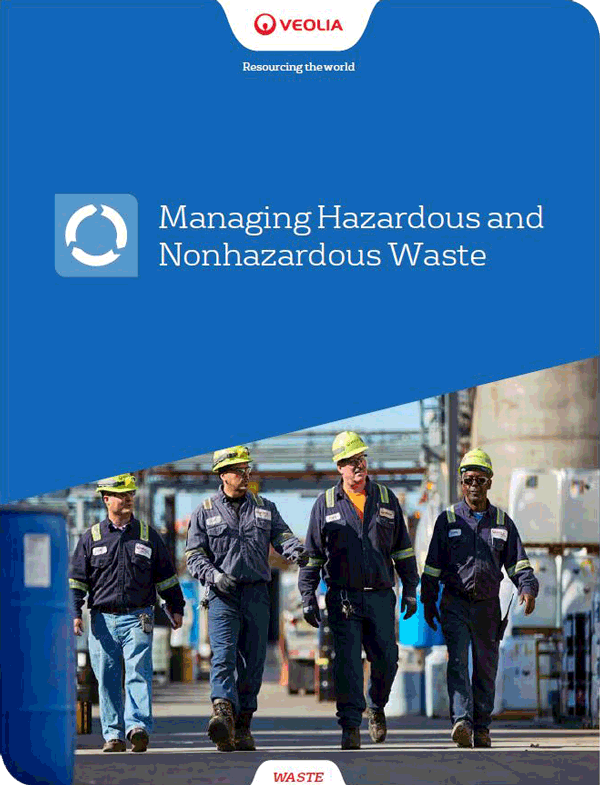Whether you work in the utility, refining, healthcare, manufacturing, or a wide range of other industries, waste streams are complex and require specialized knowledge. Improperly managing complicated waste streams can harm the environment, hurt a company’s bottom line, and open them up to increased liability, penalties, and costs.
The best way to mitigate these risks is by utilizing the knowledge, experience, and expertise of your waste service provider. They have the skills necessary to take the waste management burden off your shoulders and to ensure everything is disposed of properly, sustainably, and in accordance with applicable regulations.
The question is, who do you choose as your waste services provider? Do you go for a large, global company that has many resources at its disposal and most likely a bigger staff and wider range of capabilities, or a local company that knows your area well and is possibly more responsive? Let’s take a look at the benefits of a local vs. global waste disposal provider.
Benefits of a local waste services provider
A waste management company needs to understand and to comply with a variety of different laws and regulations, encompassing requirements at the federal, state, and local levels. Working with a waste service provider that operates in your area means they are most likely experts in that area’s rules and way of doing business. That understanding can reduce the learning curve when it comes to starting out with a new service provider.

Another potential benefit of working with a smaller, local waste provider is that you may be able to receive more customized services. Larger national or international waste service providers often have more rigid standards or set services that aren’t easily adapted to local needs. Plus, you might have more in-person time with your waste provider, helping you both to get to know one another’s capabilities and needs better, in order to create more efficient and streamlined processes. A local company could also be more responsive to emergency or last minute needs you may have.
Benefits of a global waste services provider
The primary advantage to working with a global waste company is that they have a larger footprint, usually possess greater financial strength, offer a broad range of services, assure regulatory compliance and have expertise in a wide variety of segments. Large providers will also have the experience of working with many different companies across the country and the globe, so they have a toolbox full of potential solutions that could be applied to your situation and needs.

National and international waste services providers typically possess the knowledge of different states and countries. That knowledge will come in handy if you need to transport waste across state or national borders. Larger companies are also more likely to have a variety of types of facilities, from incineration centers and landfills, to energy recovery facilities and storage locations. With a global supplier, you generally have far more resources at your disposal.
Choose “glocal,”the best of both worlds
When it comes to waste services providers, many companies are opting for hybrid providers; ones that offer localized service specified to their needs and have the resources and expertise of a global service provider. The term that refers to these types of waste management and disposal companies is “glocal."
“Glocalization” in waste management is part of a wider trend throughout every segment of the economy. Glocal describes a product or service that is distributed globally, but is adjusted to accommodate the user or customer in a local market. An example of this trend in other industries is cars that are sold worldwide but tailored to meet local emissions or safety standards. Even companies like McDonald’s alter what they offer to meet specific national or regional tastes.
Glocalization can also refer to multinational companies opening offices throughout the world and allowing a degree of localized decision making, while still relying on the resources of the global business. Decentralization and adapting to local situations can strengthen the resilience of a business and help them better respond to global and regional events such as a pandemic or changing market conditions.
What glocal means for waste management services
With rising environmental standards and expectations, waste disposal has taken on a more complex role in recent years. Both hazardous and non-hazardous waste streams must not only be dealt with in a way that won’t harm communities or destroy ecosystems, they must also take into account long term sustainability. What that means is that, wherever possible, waste should be reused, recycled, converted into energy, or reverted back to a feedstock.

Local waste providers often don’t have the necessary expertise or range of services to help companies meet their environmental goals for waste. The result is that you or they will have to rely on a string of multiple providers, each specializing in a specific disposal, recycling, or storage method. Relying on multiple providers often means more work and higher costs.
By working with a provider that is local but has a global company to lean on, you essentially have a one stop shop for sustainable waste disposal in your neighborhood, including new, innovative solutions that contribute to sustainability like:
- Electronics recycling
- Fuels blending
- Incineration for energy production
- Solvent recovery
- Used oil regeneration
- Sulfuric acid regeneration
You gain from having a team nearby that is responsive and understands your needs, while also having a huge R&D department and a wide range of in house capabilities, including regulatory compliance.
The glocal advantage
Working with a glocal company is the best option for effectively dealing with your hazardous and non-hazardous waste. They’ll provide you with the range of expertise and capabilities required to sustainably handle your waste streams and constantly develop new methods, while also providing the close support and attention you’d receive from a smaller, one shop operation.


